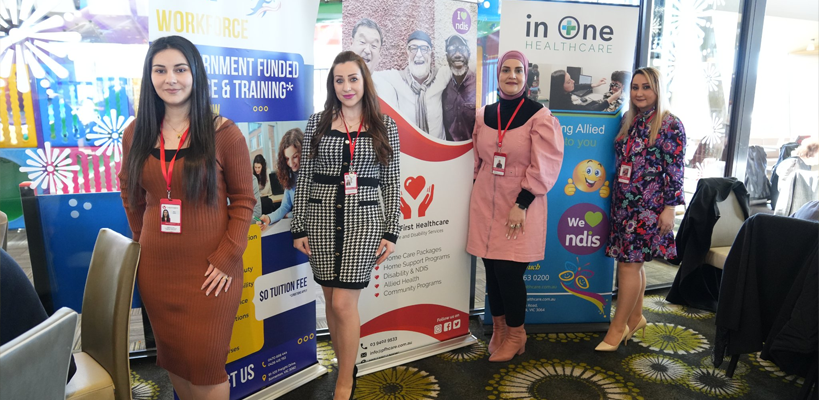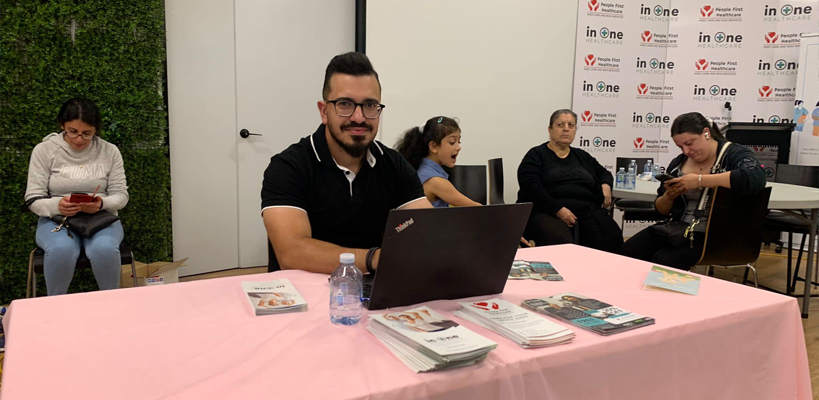Most Ask
We do whatever it takes to bring you peace of mind
NDIS plan is a document that is based on your goals and describes the disability-related services and support that will help them to achieve those goals. It describes the funded supports you will receive from the NDIS.
All reasonable and necessary disability care, equipment and support services will be funded through the NDIS.
Generally, the supports and services that will be provided, if eligible, need to assist you to:
- work towards achieving your goals
- become as independent as possible
- develop skills for day-to-day living
- participate in the community
In practice this means providing support, as and if required, in areas including:
- mobility
- communication
- self-care and self-management
- social interactions
- learning
- building skills and capacity for social and economic participation
Our Engagement team can answer your NDIS questions no matter what stage of your NDIS journey you are at.
Not all types of support required by a person living with a disability fall under the responsibility of the NDIS .
Some supports are funded by other areas of government (e.g. state health systems) or existing public/community services.
In general, the NDIS will fund reasonable and necessary supports that help a person living with a disability enjoy an ordinary life.
These supports and services fall into three categories..
The Disability Support Pension along with other income supports and payments such as the Carer Payment, Carer Supplement, Carer Allowance and Child Disability Assistance Payment are entirely separate to the NDIS.
These payments will not be affected if a patient qualifies for NDIS funding (the exception to this is the Mobility Allowance from Centrelink, which may be replaced if your patient’s NDIS plan includes transport-related funded supports).
It’s important to note that someone who is receiving the Disability Support Pension is not automatically eligible for NDIS funding and supports.e.
Most Ask
Disability & NDIS Suit Your Needs
If you are eligible for the NDIS, you will receive funding on an annual basis to purchase the services, aids and equipment you need from the service provider/providers of your choice
NDIS participants and carers are not charged for language interpreting services.
The interpreters’ role is to interpret spoken words only. This means they are unable to give you advice about the NDIS.
NDIS Planners, Early Childhood Early Intervention Services and Local Area Coordination Services can help you to get an interpreter.
You can ask your NDIS Provider to help book a specific interpreter every time you meet with them, for example, if you want the same interpreter or prefer a specific gender.
Registered NDIS Providers, including Support Coordinators, can register with TIS National to allow NDIS participants and their carers access to NDIS funded interpreters.
The NDIS is not designed to fund supports more appropriately funded or provided by the health system.
Assessment, diagnosis and treatment of health conditions, along with medications and hospital care, remain the responsibility of the health system.
As a general guide, the following health-related services and supports are not provided or funded through the NDIS:
Items and services covered by the Medicare Benefits Schedule (MBS) and Pharmaceutical Benefits Scheme (PBS), nor Medicare gap fees.
Treatment, services or supports delivered by a doctor or medical specialist, including diagnosis and assessment of a health condition.
Items and services provided as part of diagnosis, early intervention and treatment of health conditions, including ongoing care of chronic health conditions.
Medically prescribed care, treatment or surgery for an acute illness or injury including post-acute care, convalescent care and rehabilitation.
Sub-acute care including palliative care, end of life care and geriatric care..
You have choice and the control over how you use funded supports in your plan. That includes choice of how the supports are given and which service providers you use.
In some cases the NDIA or others will manage the funding for supports. For example, where there is an unreasonable risk to a participant.
Testimonials
What our client's say
Mum & Dad have been with People First Healthcare for about 5 months. Firstly, the service we get from the care manger and the package manger ( Amnah and Danela ) is exceptional. Very responsive, very proactive and easy to get hold of and communicate with them. For me as the person looking after my parents this is the most important.
Yabbie
I have been most impressed by the care and support offered by our case worker Nancy from PFH Care. Nancy is both a nurse and case worker and so is able to think about the needs of the elderly from multiple perspectives and take appropriate prompt action
Anne Scott
My elderly neighbour joined up a few months ago. We couldn’t be happier. The staff are friendly, considerate and all about taking care of her. Nothing is too difficult and everything she needs has been met. They are just wonderful. Highly recommend





